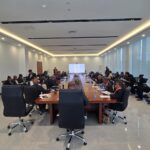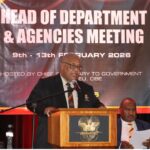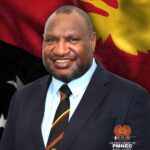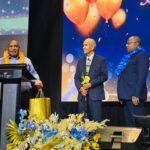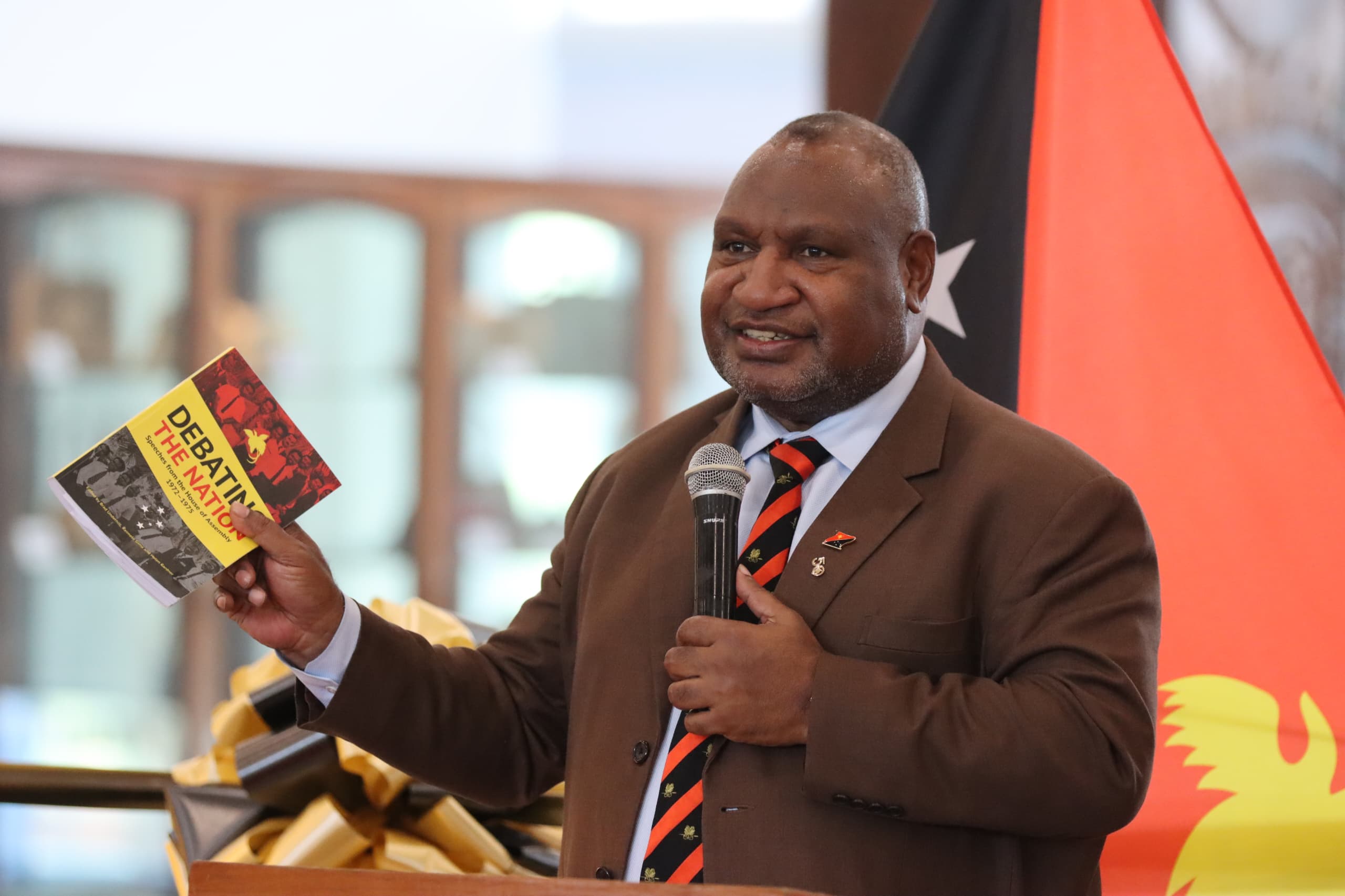Hon. James Marape has urged Papua New Guineans, especially the staff of the Department of the Prime Minister and National Executive Council (PM &NEC), to draw inspiration from the nation’s founding leaders as the country marks its 50th Independence Anniversary.
Speaking at the launch of the 50th Anniversary Exhibition at Melanesian Haus in Port Moresby on Wednesday, September 3, 2025, PM Marape reminded staff that the generation which delivered Independence between 1972 and 1975 achieved monumental tasks in just three years, without the advantages of modern education or technology.
“That generation moved mountains against all odds,” PM Marape said. “They worked quickly, they worked with dedication, and in just three years they gave us self-government, a constitution, and independence. Their example must inspire us today — we have no time to waste.”
The Prime Minister said the exhibition was a timely reminder that Papua New Guinea’s story did not begin in 1975 but stretches back thousands of years. He pointed to the Kuk Early Agricultural Site in Western Highlands, where evidence of organised agriculture dates back 7,000–10,000 years, and the Ambum Stone from Enga Province, carbon-dated to more than 4,000 years old. He also highlighted Pacific-wide cultural connections through Lapita pottery, the Hiri trade, and traditional shell money, all evidence that Papua New Guineans were part of advanced civilisations long before modern statehood.
“We are an ancient people, with history, culture, and knowledge systems that predate many parts of the world,” he said. “This exhibition must remind us of that heritage, and also inspire us to work hard for the future.”
PM Marape called for the exhibition to be developed into a permanent “living museum” within the national government offices. He said every visitor to the Office of the Prime Minister — from school children to international dignitaries — should encounter Papua New Guinea’s rich biodiversity, its more than 800 languages, and its proud political journey.
“This floor must tell the story of our past, our present, and motivate us for the future,” he said. “If there is one department that must always be inspired, it is the Department of PM &NEC, because this is where decisions are made that affect every citizen of our country.”
PM Marape reminded staff not to take their positions for granted, but to work with urgency and commitment in the spirit of the “greatest generation” of 1972–75. He criticised delays in implementing government policy directions, stressing that the needs of ordinary Papua New Guineans were too pressing for bureaucracy to move slowly.
“Our people are still struggling — with jobs, education, health, and law and order. We cannot afford to waste time,” he said. “Every policy decision delayed is a setback for our people.”
The Prime Minister read excerpts from the debates of the House of Assembly and the Constitutional Planning Committee in the early 1970s, noting that concerns raised then — about law and order, education, and equitable development — remain relevant today. He emphasised the vision of the framers of the Constitution, who defined “authentic development” as integral human development — the growth of people first, ahead of material wealth, military might, or prestige.
“They had it right from the start,” PM Marape said. “Integral human development must remain our number one priority. Everything else is secondary.”
PM Marape concluded by urging all Papua New Guineans to take pride in the nation’s 50th Independence Anniversary, but also to recommit to building a stronger future.
“Prime Ministers will come and go, but this department and this country must endure,” he said. “If we are not inspired by the sacrifices of the past, then God help this country. Let us rise to the challenge and carry forward the work of those who built this nation.”
The exhibition will remain open to the public throughout the Jubilee celebrations, showcasing PNG’s cultural heritage, biodiversity, political journey, and vision for the future.


